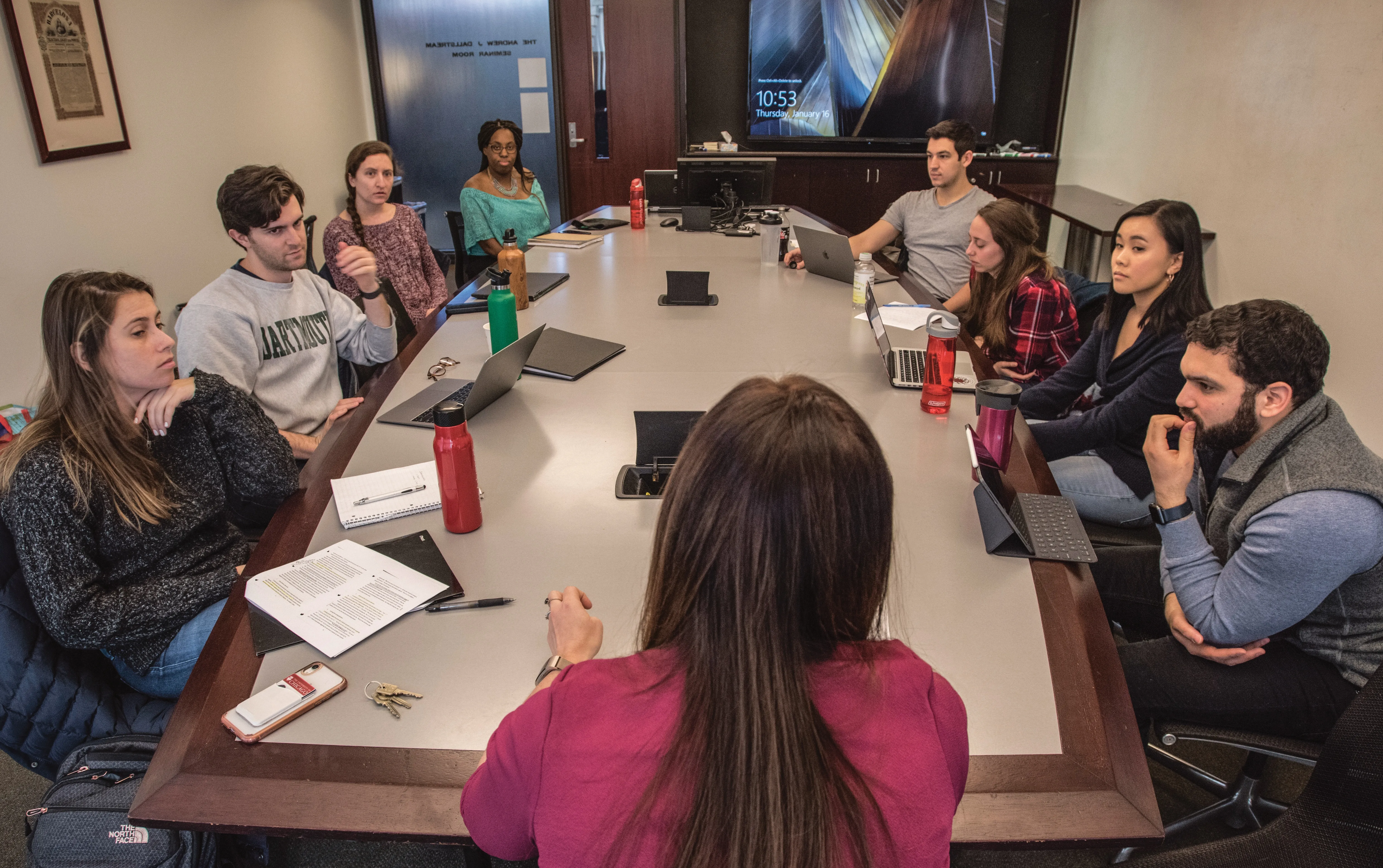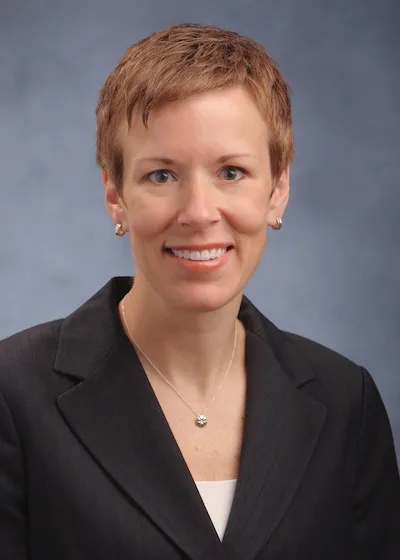‘Ultimate Flexibility’

Beginning this fall, the Law School and the Booth School of Business will offer prospective students the opportunity to earn a JD/MBA in just three years, accelerating the increasingly attractive dual-degree program through an immersive, integrated curriculum that gives students access to the resources of both schools and prepares them for careers in law, business, or both.
“This is an extraordinary opportunity for students to study with some of the world’s most distinguished scholars in law and business and to benefit from the outstanding interdisciplinary resources of two eminent University of Chicago institutions,” said Law School Dean Thomas J. Miles, the Clifton R. Musser Professor of Law and Economics. “JD/MBAs are in rising demand as the fields of law and business become increasingly intertwined. The Law School has, for decades, worked with and supported students who wish to pursue both a Juris Doctor and a Master of Business Administration, and now we are tremendously excited to offer that joint degree in three years.”
In the last two decades, the legal market has shifted: Lawyers pursue careers in a variety of professions—ascending to the top rungs of corporate leadership, launching innovative start-ups, and advising global clients who face increasingly complex issues. The Law School has responded by offering a variety of opportunities for students to include business classes in their coursework. The Doctoroff Business Leadership Program, launched in 2013, brings top Booth professors into the Law School to teach business courses that are specifically designed for law students. Those accepted to the program earn a certificate after completing five Doctoroff classes and participating in mentorship and internship programs, and they graduate in three years with a broader and more nuanced understanding of the relationship between the two disciplines. The Doctoroff classes are open to any student at the Law School, and they count toward JD/MBA requirements.
A four-year JD/MBA program, which the Law School and Chicago Booth will continue to offer, enables students to pursue a more specialized study of law and business. That longer program allows for more classes and a third summer internship.
But the new JD/MBA program reaches an important third market: students who want both degrees but don’t want to wait four years to launch—or continue—their careers.
“We want to provide ultimate flexibility by giving our students the ability to study business and law in the way that meets their individual needs,” said Ann Perry, the Law School’s associate dean for admissions. “We’ve essentially built three different houses from the same core components—we’ve just arranged them to fulfill different goals. A student who primarily wants a JD but seeks an enhanced understanding of business, finance, and marketing can apply to Doctoroff. A student who wants to delve particularly deeply into business and law can apply to the four-year program. And a student who wants a joint degree and is willing to embrace the compressed schedule can apply for an accelerated JD/MBA.”
The Best of Both Schools
Accelerated JD/MBA students will have access to the resources of both institutions throughout their programs. They will be able to enroll in Law School clinics and participate in student organizations, committees, and other activities at both schools. Both schools will provide students with advisors who will help them refine plans, curricula, and career goals.
“This is just another example of the interdisciplinary tradition that is the University of Chicago,” said Douglas G. Baird, the Harry A. Bigelow Distinguished Service Professor and the faculty director of the Doctoroff program. “The students in the three-year program will benefit from the synergy between the schools. By being involved in both they will have unparalleled opportunities for networking and connecting.”
Just as in the four-year program, students will spend the entire first year of the accelerated JD/MBA program at the Law School. They will still need to fulfill the requisites put forth by the American Bar Association—taking standard law school courses such as property, torts, and civil procedure; participating in the legal research and writing program; and meeting experiential requirements—while also preparing to pass the bar exam after graduation. Doctoroff classes—the business classes taught by Booth faculty at the Law School—will count toward requirements for both the Law School and Chicago Booth.
In the second year, students will take most of their classes at Booth, along with Doctoroff offerings at the Law School. Students with work experience or certain undergraduate majors may be able to replace some foundational business courses with electives or other advanced classes.
In the third year, students will likely spend time at both schools, completing required courses and taking electives. Most students will take four classes per quarter, completing 14 Booth classes alongside the JD requirements. JD/MBA students will still have the opportunity to complete nearly any of Booth’s concentrations.
To complete the degree in three years while retaining flexibility to take more electives, students may choose to complete two summer classes at Booth. The business school offers evening classes at its downtown Gleacher Center every summer, which allows students to work at internship programs at law firms in and around Chicago while completing degree work.
Streamlined Admissions
Candidates for the three-year program will complete one application, available on the Booth website, and must be accepted by both schools, as well as by the Doctoroff Business Leadership Program.
Those who do not meet criteria for both schools can indicate that they would also like to be considered for admission to just one program. The number of students attending the Law School will not expand because of the joint program; the 15 to 20 students accepted each year will be calculated as part of the usual Law School acceptance numbers. Current first-year law students are eligible to apply for the new program—and some have signaled interest—but the majority of future students will begin as joint-degree candidates.
During the admissions process, each school will apply its own requirements. In addition to the expectation that students will have stellar grades and test scores, Booth students—whose average age is 28, four years higher than at the Law School—are expected to have a few years of business or entrepreneurial experience. While the Law School generally recruits students on college and university campuses, the accelerated JD/MBA program will also offer presentations at hedge funds and other businesses where young innovators work.
The different criteria and broader recruiting will make for a richer cohort, giving the students exposure to classmates with a variety of past experiences and future plans.
“The new JD/MBA program, in addition to being more useful for students, will also be incredibly beneficial to the business school by bringing this high-caliber population into our classrooms and thus enriching the experience for their peers and our faculty,” said Booth Dean Madhav Rajan, the George Pratt Shultz Professor of Accounting.
Just as with the four-year JD/MBA, graduates of the new program are expected to fall evenly into two tracks: those who pursue business careers in which law is helpful and those who practice law in a business setting. Previous graduates of the four-year JD/MBA program have gone on to work in the financial sector, in corporate legal departments, and as entrepreneurs. Those who join law firms benefit from business knowledge and acumen, especially in executive and managerial positions.
“The accelerated JD/MBA program is a win for both the Law School and Booth, and most importantly for our students,” Miles said. “This partnership truly represents our shared commitment for creating exemplary future leaders.”



